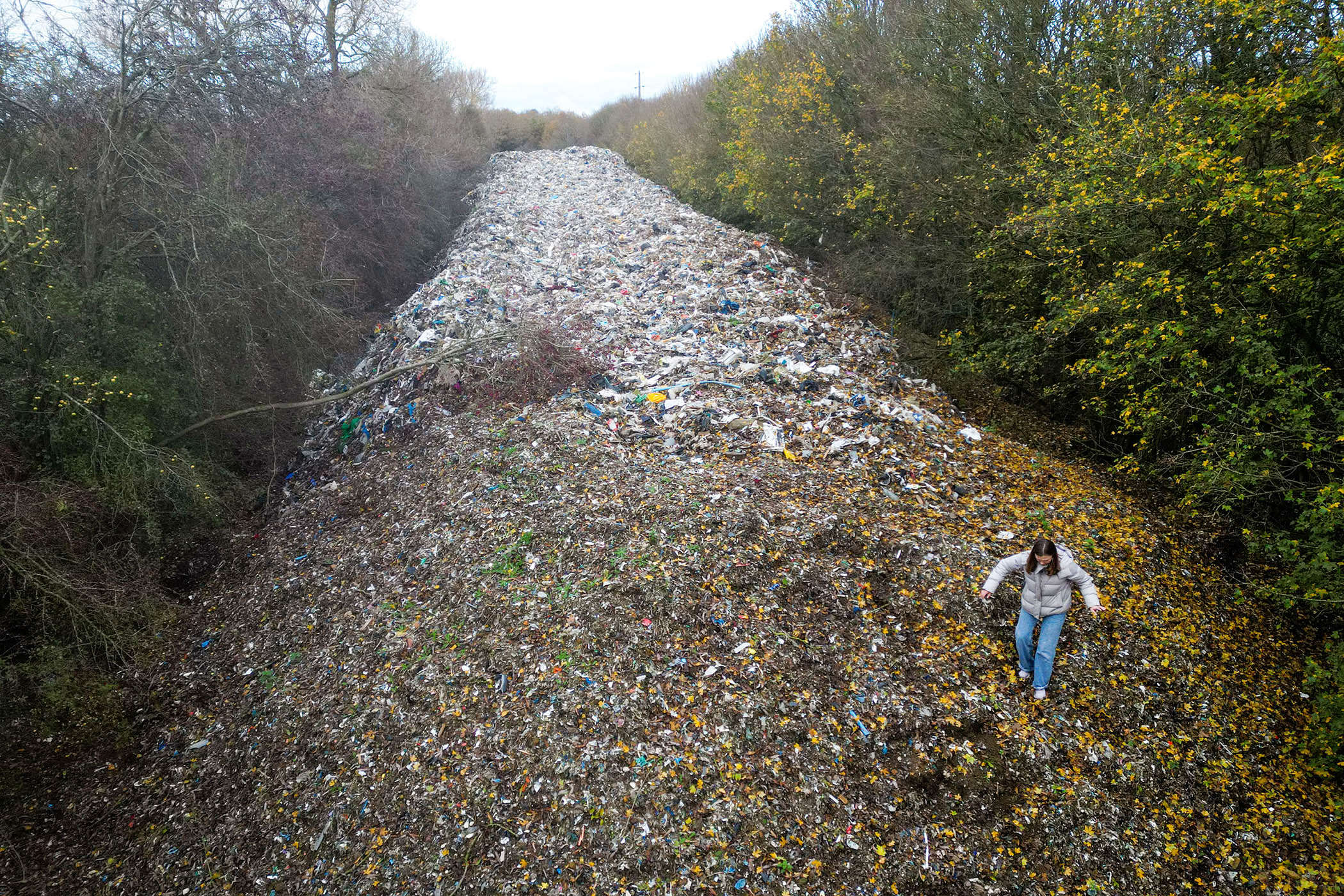A vast pile of rubbish stacked ten metres high has been dumped in a field in Oxfordshire.
So what? This is the latest and most flagrant example of illegal waste dumping in Britain, which has been previously linked to organised crime groups involved in drug trafficking and money laundering. The trash mountain
•
lies between a dual carriageway and the river Cherwell;
•
mainly comprises shredded plastic that extends for 150 metres; and
•
has forced the Environment Agency to launch a major criminal investigation.
Not cheap. The local MP believes the cost of cleaning it up could exceed the yearly budget for the district council, which is £26 million. Illegal dumping on a similar scale at Hoad’s Wood, an ancient woodland in Kent, will cost up to £15 million to deal with and require a team of specialist workers to handle asbestos and heavy metals.
Not an outlier. There are six illegal waste dump sites of this scale around the country, according to the House of Lords Environment and Climate Change Committee.
J’accuse. The committee said that the Environment Agency has failed to pursue reports of waste crime and use its powers to stop illegal dumping, and that the police have lacked interest in tackling it even though it is a “subset of and gateway to” other forms of organised crime.
Expert view. Dan Cooke from the Chartered Institution of Wastes Management said that as the government has legislated to drive material out of landfill, disposal costs have increased. This has been “exploited at scale by serious and organised criminals”.
Back to the mountain. It is not known who is behind it, but there are two puzzles.
Puzzle one: why it took so long for the dumping to be spotted and reported. Environment Agency officers visited the site in July. Satellite imagery shows that rubbish started accumulating in August after the grass was cleared earlier in the summer. The agency secured a court order to close the site in October.
Puzzle two: the nature of the rubbish. Rather than waste that looks as if it has come directly from a construction site, the dumped plastic includes ordinary commercial waste. A restaurant menu and an office worker’s pass are visible, which suggests that it may have been collected by council waste workers before ending up in the field.
Slow justice. The Environment Agency has now closed the site with a metal barrier. But cleaning it up may take much longer. The agency said that unless there is a threat to life, it operates under the Polluter Pays principle. If organised criminals are involved, that will require a successful prosecution and confiscation of assets.
Do it yourself. In the Hoad’s Wood case, a government minister ordered the Environment Agency to deal with the site. The agency warned last year that there were around 500 active illegal waste sites across England, and shouldering the cost of cleaning one up might mean they had to do it again.
River people. Laura Reineke from Friends of the Thames said the agency should act faster on the grounds that the plastic pile will “kill biodiversity”. Reineke argues that the River Thames, of which the Cherwell is a tributary, should be granted the same legal status as a person. The Whanganui River in New Zealand carries such a status.
That may be an utopian vision, but in the short term a shift to tracking waste digitally rather than with paper-based records may reduce the rubbish leaking out of the legal system. But the Environment Agency is likely to need more resources.
What’s more… Making prosecutions stick is hard. The criminals involved in the illegal waste business have plenty of money and can probably afford good lawyers.
Photograph by Justin Tallis/AFP via Getty Images.



